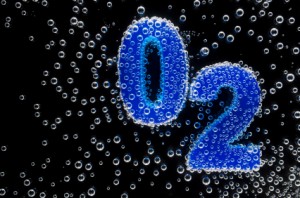Princeton University researchers have compiled 30 years of data to construct the first ice core-based record of atmospheric oxygen concentrations spanning the past 800,000 years, according to a paper in the journal Science.
The record shows that atmospheric oxygen has declined 0.7 percent relative to current atmospheric-oxygen concentrations, a reasonable pace by geological standards, the researchers said. During the past 100 years, however, atmospheric oxygen has declined by a comparatively speedy 0.1 percent because of the burning of fossil fuels, which consumes oxygen and produces carbon dioxide.
Curiously, the decline in atmospheric oxygen over the past 800,000 years was not accompanied by any significant increase in the average amount of carbon dioxide in the atmosphere, though carbon dioxide concentrations do vary over individual ice age cycles. To explain this apparent paradox, the researchers called upon a theory for how the global carbon cycle, atmospheric carbon dioxide and Earth's temperature are linked on geologic timescales.
Because oxygen is critical to many forms of life and geochemical processes, numerous models and indirect proxies for the oxygen content in the atmosphere have been developed over the years, but there was no consensus on whether oxygen concentrations were rising, falling or flat during the past million years (and before fossil fuel burning). The Princeton team analyzed the ice-core data to create a single account of how atmospheric oxygen has changed during the past 800,000 years.
